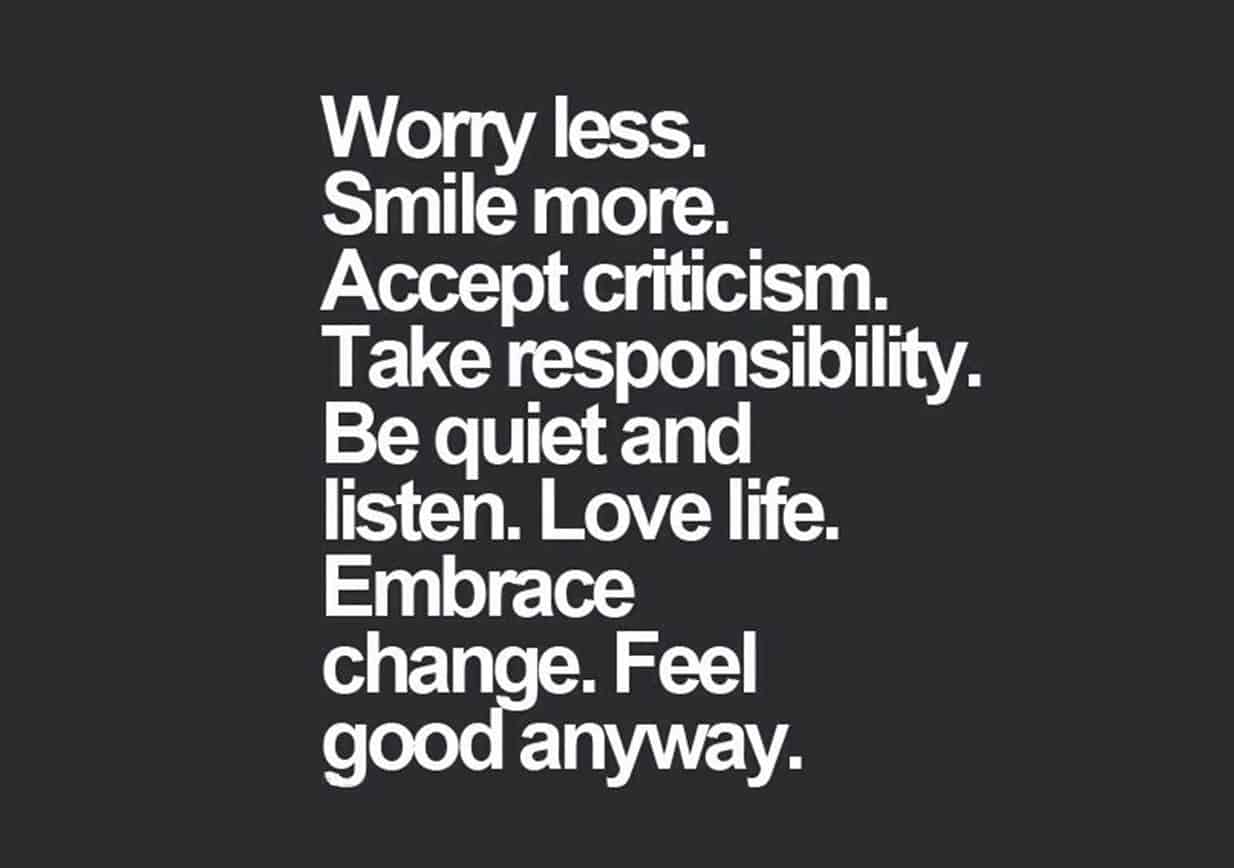How to Handle Criticism in a Healthy Way
Criticism is a universal experience that can trigger feelings such as anger, shame, or fear – and our first reaction is usually to defend ourselves or to lash back.
And yet, while criticism can be taken as hurtful, it can also be viewed in a positive way: it can be an opportunity to improve. Keeping a healthy attitude will not only help you NOT get depressed by criticism – but it can also help you move forward in life.
There are two types of criticism – constructive and destructive. Learning to recognize the difference between the two can help you deal with criticism you may receive. Destructive criticism is intended to harm, undermine, or even destroy someone’s creation, reputation, or self-esteem.
Constructive criticism, on the other hand, is the process of offering valid and well-reasoned opinions about the work of others, usually involving both positive and negative comments, in a friendly way rather than an oppositional one. Constructive criticism should be viewed as useful feedback that can help you improve yourself rather than put you down.

Are they worth it – and what is their motivation?
The first step towards accepting criticism is to consider the source. Are you getting constructive criticism from someone you respect?
If you are getting destructive criticism from a habitual complainer or someone who is insecure, ignore them and move on. If you know a person who is critical of everything, try not to take their comments too seriously. It’s just who they are. According to Psychology Today, these are some important questions to ask yourself so you can be more mindful and strategic in your response:
- Does this person seem to be coming from a genuine place?
- Is any part of their criticism legitimate? What was your contribution?
- Are they trying to be helpful?
- Is the criticism public or private? If public, why did they choose that forum?
- Does the criticizer seem to be competing with you for status, position, or inclusion?
- Are there hurt feelings underneath? Notice the person’s body language, tone of voice, etc.
- Who is the intended audience? You or somebody else?
- Is the criticizer really interested in solving a problem or reaching a mutual understanding?
- Are they willing to listen to you?
- Are they capable of moving off of their position to reach a compromise?
- Is this just a difference of opinion or something more personal?
- Are they just venting or do they want you to try to fix things?
- Do they perceive you inaccurately? Are they projecting qualities or intentions onto you that are more about their own issues?
- Is this only about them? Are they respecting your right to have a different opinion or make an independent choice?
Stop your first reaction
After considering the source, if your next reaction is to lash back at the person giving the criticism or to become defensive, take a minute before reacting. Feeling “attacked” may trigger a fight-flight-or-freeze response. Take a breath and cool off to allow logic to step in.
Having a stock comment in your pocket, such as, “That’s an interesting viewpoint,” or, “I’ve never thought of it that way,” can lessen the initial emotional impact, especially if the comment came out of the blue and caught you by surprise.
If you have received criticism that is particularly heavy or contentious, then feel free to ask for more time to process it. This is always better than responding in the heat of the moment.
Avoid making excuses
One of the worst things you can do is to be aware of your mistake and try to cover it up. If you know that the criticism you are facing is coming from a right place, learn to accept it. When being criticized, it’s a good time to thank someone “for their feedback.” If you try to sidestep or justify, you’ll only succeed in looking weak.
Embrace it as a learning opportunity
We all make mistakes. As we go through life, we have plenty of opportunities to learn and improve. However, accepting constructive criticism positively does not mean shutting yourself off emotionally. It is normal to feel hurt. Come to terms with the fact that the other person’s comments may have hurt you. Once you have acknowledged it, you can allow yourself to move ahead and use their words toward the process of self-improvement.
Depending on the situation, you may want to assert your independence or right to have a different opinion – “Let’s agree to disagree.” You may set a limit, try to find a compromise, or let them know what choices are available. Putting yourself in the other person’s shoes can help you be more patient. If the criticism is legitimate, you may want to take corrective action.
Decompress with a friend
When we’re upset from criticism, we tend to withdraw from others. Instead, reach out. You don’t have to keep your feelings bottled up. If you are hit with a particularly hurtful criticism, reach out to a friend to talk about it. In that moment they will most likely be better than you are at putting things in perspective.
Nobody likes to be criticized, but it is part of the human experience. Dealing with constructive criticism positively is an important life skill. You can either use it in a negative way that can lower your self-esteem and cause stress, or in a positive way to improve yourself.
At the Arise Society, we help young adults that are struggling with anxiety, depression, gaming and other motivational issues. We provide personalized academic, therapeutic, and social support in a real-world setting, which gives our students the skills to reach their fullest potential.
Sources:
https://www.psychologytoday.com/gb/blog/the-mindful-self-express/201408/the-30-most-common-reasons-people-might-criticize-you
https://www.skillsyouneed.com/ips/dealing-with-criticism.html

Get In Touch
Orem, UT 84058
thearisesociety.com
Phone: (801) 300 - 9995
Fax: (801) 405 - 0103



